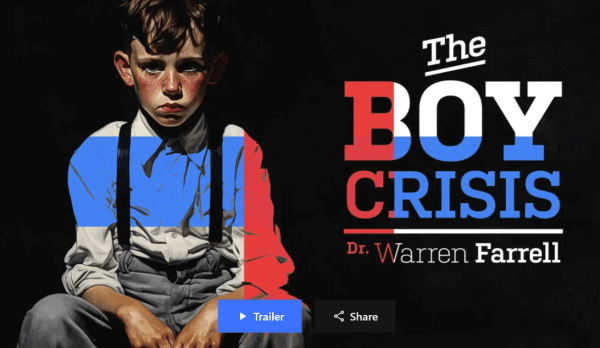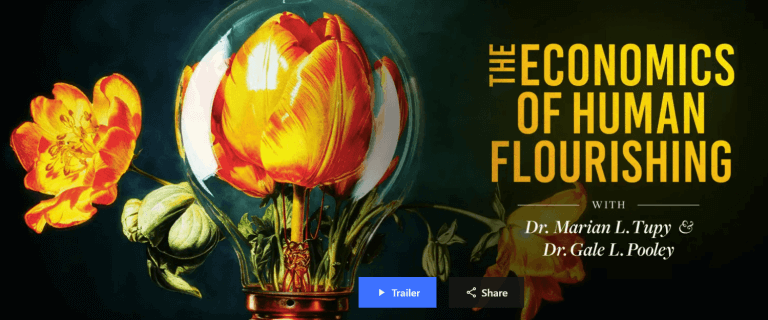Peterson Academy – Warren Farrell – The Boy Crisis

Dr. Warren Farrell
Political Scientist
In The Boy Crisis, a six-hour course, Dr. Warren Farrell explores the Boy Crisis, a phenomenon in developed nations where boys face challenges in various aspects of life. He presents evidence of this crisis and identifies five main causes: the absence of father involvement, misguided beliefs about male power and privilege, a lack of purpose, fear of psychological attachment, and a repulsion for male vulnerability. Dr. Farrell discusses the impact of these factors on boys’ development, education, and future prospects, emphasizing the need for a more balanced approach to parenting and gender issues.
Lectures
1. Causes & Consequences
In our introductory lecture, Dr. Warren Farrell delves into the causes and consequences of the Boy Crisis, a phenomenon observed in developed nations where boys are struggling in various domains. He presents extensive evidence of this crisis, both in the United States and globally. Dr. Farrell lays out 5 causes of the Boy Crisis that we explore throughout the course. He identifies the absence of father involvement, or “dad-deprived boys” as cause #1, emphasizing the unique contributions fathers make to child development through parenting practices like roughhousing, which foster empathy, delayed gratification, and social skills in children.
2. Parenting and Gender Issues
In lecture two, we look further into the challenges faced by dad-deprived boys, exploring how a lack of father involvement can lead to increased crime, drug dealing, bullying, and even mass shootings. We also introduce cause #2 of the Boy Crisis, the misguided “half century of belief” about male vs. female power and privilege. Dr. Farrell examines the impact of societal attitudes and biases on boys’ education, self-esteem, and future prospects, highlighting the need for a more balanced approach to parenting and gender issues. Dr. Farrell also discusses the complexities surrounding abortion rights and the importance of considering fathers’ roles and responsibilities in the decision-making process.
3. Purpose Void
In lecture three, Dr. Farrell dives into cause #3 of the Boy Crisis, the “purpose void”, discussing how traditional male roles of disposability in war and work are being replaced by a lack of purpose in the modern era. He explores the challenges fathers face in transitioning to new roles, the conflict between career success and love, and the toll that the pursuit of high pay can take on men’s well-being and relationships.
4. Unmasking Vulnerability
In lecture four, Dr. Farrell discusses several myths surrounding the Purpose Void. We move on to the 4th cause of the Boy Crisis, namely “the fear of psychological attachment to someone we love, who we may lose.” Dr. Farrell then discusses cause #5 of the Boy Crisis, “a repulsion for males who complain,” and the repression of male vulnerability and its consequences. He emphasizes the need for a new understanding of these issues and the importance of open communication between men and women to address them effectively.
5. Solutions
In lecture five, we explore solutions to address the Boy Crisis on personal, community, school, and political levels. Dr. Farrell emphasizes the importance of father involvement, highlighting that many dads desire to be more engaged with their children. Single mothers are encouraged to seek out surrogate father figures, such as church leaders, coaches, and mentors, to provide positive male role models. We also discuss the benefits of reviving recess, vocational education, and family dinner nights to support boys’ development and well-being.
6. Courageous Love
In this sixth and final lecture, Dr. Farrell discusses his work in conducting couples’ communication workshops, where he helps partners develop the ability to handle personal criticism without becoming defensive, fostering a deeper sense of love and understanding. Dr. Farrell also reemphasizes the critical role of fathers in child development, citing research on the positive social and biological outcomes for children with involved fathers. Additionally, he emphasizes the necessity for a societal shift toward more flexible gender roles, moving away from rigid expectations and allowing both men and women to discover and pursue their unique selves. Dr. Farrell finishes the course with a poignant anecdote, to illustrate the transformative power of love, self-discovery, and the support of others in making courageous life decisions.















Reviews
There are no reviews yet.